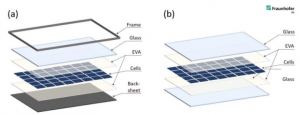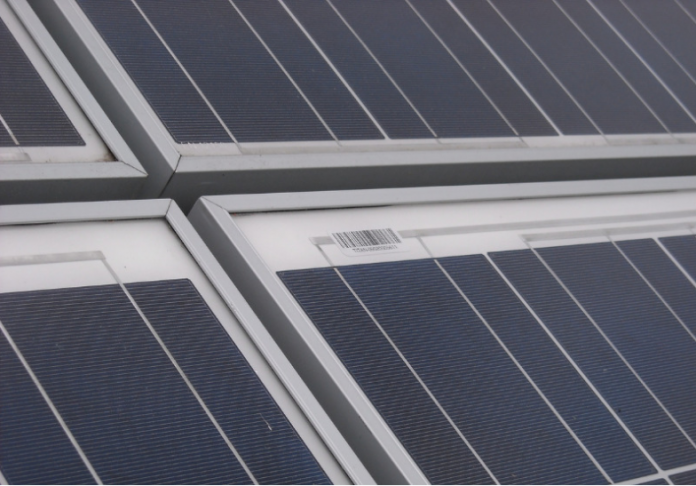Researchers at the Fraunhofer Institute for Solar Energy have claimed that solar modules manufactured in the European Union produce 40% less carbon dioxide than modules manufactured in China.
China dominates the solar module market. In 2019, it produced 68% of polysilicon, 96% of all wafers, 76% of all solar cells, and 71% of all solar modules.
The researchers used a life cycle analysis and compared the CO2 footprint of monocrystalline solar modules manufactured in Germany, Europe, and China. The study also found that glass-glass modules enabled an additional emission reduction between 7.5% and12.5% compared to solar modules with backsheet films, regardless of their production location.
In its study, the researchers said that glass-glass modules do not require an aluminum frame that is very energy-intensive to produce. In addition, glass-glass modules also have a longer lifetime and lower annual degradation than modules with a film. Therefore, glass-glass modules produce 22%-27% less carbon dioxide emission than glass-foil modules.
According to the study, the carbon dioxide emissions for glass-foil modules are 810 Kg/kWp in China, 580 Kg/kWp in Germany, and 480 Kg/kWp in the European Union. The carbon dioxide emissions for glass-glass modules are 750 Kg/kWp in China, 520 Kg/kWp in Germany, and 420 Kg/kWp in the European Union.
The researchers said the carbon footprints of solar modules had been improved by around 80% in recent years due to improvements in silicon yields, manufacturing process, module efficiency, and the carbon dioxide intensity of power generation.
Glass-glass PV modules (b) do not require an aluminum frame and therefore have a lower carbon footprint than PV modules with backsheet (a)
 Glass-glass PV modules (b) do not require an aluminum frame and therefore have a lower carbon footprint than PV modules with backsheet (a). Source: Fraunhofer ISE
Glass-glass PV modules (b) do not require an aluminum frame and therefore have a lower carbon footprint than PV modules with backsheet (a). Source: Fraunhofer ISE
Holger Neuhaus, Head of Department for Module Technology at Fraunhofer ISE, said, “With solar modules manufactured in the EU, I save 40% carbon dioxide emission compared to modules imported from China. This is mainly due to the energy mix of the respective countries and less to the emission generated during transport. At 50% to 63%, the share of energy required in manufacturing is the most influential factor on the carbon dioxide footprint of a solar module.”
“Due to the significantly lower carbon dioxide emissions during production and the further strong increases in demand for more climate-friendly solar modules worldwide, it is now a matter of establishing the solar production chain in Europe quickly and with a great deal of commitment,” Neuhaus said.
At the 48th IEEE Photovoltaic Specialists Conference, researchers from Fraunhofer Institute for Solar Energy System demonstrated how they had obtained a record conversion efficiency of 68.9% with a photovoltaic cell under monochromatic light.
Mercom had earlier reported that Researchers at Fraunhofer Institute for Solar Energy Systems obtained a record conversion efficiency of 26% for both-sides-contacted silicon solar cells.






